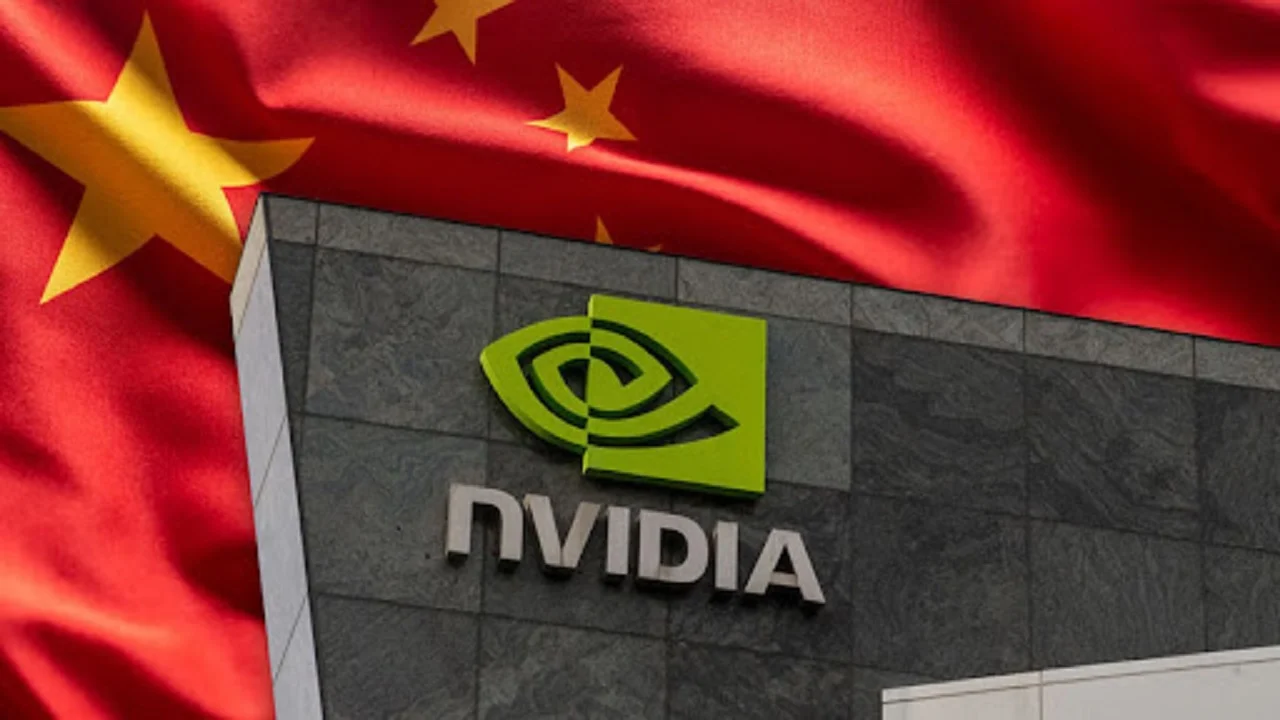Introduction
In a significant development that has captured global attention, China has launched an antitrust investigation into Nvidia concerning its acquisition of Mellanox Technologies, an Israeli chipmaker, in 2020. The investigation revolves around potential violations of China’s antimonopoly laws. This move follows growing tensions between the US and China, particularly in the technology sector, fueled by the US government’s sanctions on Chinese tech companies and products.
The $7 billion acquisition, which was approved by Chinese regulators under specific conditions, included provisions that aimed to ensure fair competition between Nvidia, Mellanox, and Chinese companies. However, China’s renewed scrutiny reflects its increasingly assertive approach to protecting its tech industry from foreign dominance, especially as the global semiconductor market faces disruption due to geopolitical frictions.
Nvidia’s 2020 Acquisition of Mellanox Technologies
A Strategic Move for Nvidia
In 2020, Nvidia completed its acquisition of Mellanox Technologies, a leading Israeli chipmaker specializing in high-performance interconnect solutions used in data centers. The deal was seen as a strategic move for Nvidia to expand its reach in the data center market and strengthen its position as a key player in the growing demand for cloud computing, AI, and big data analytics.
However, the deal was scrutinized by regulators in several countries, including China, due to the implications for competition in the semiconductor sector. As a result, the acquisition was approved with strict conditions, including those aimed at ensuring that Nvidia did not use its expanded market position to discriminate against Chinese companies.
Conditions Imposed by Chinese Regulators
To address concerns regarding competition, Chinese regulators imposed certain conditions on the deal:
- Non-Discrimination Clause: Nvidia and Mellanox were prohibited from discriminating against Chinese companies when it came to access to their products and technologies.
- Product Sample Availability: Mellanox was required to provide samples of new products to competitors within 90 days of their release to Nvidia, ensuring that Chinese firms had the same opportunity to access the latest technologies.
- Fair Competition Enforcement: These conditions were intended to ensure that the acquisition did not lead to monopolistic practices or unfair competition in the Chinese market.
These conditions, while intended to maintain a level playing field, have become the focal point of the ongoing antitrust investigation, which now questions whether Nvidia and Mellanox have complied with these terms.
The Antitrust Investigation: What’s at Stake?
Investigating Potential Violations
The Chinese antitrust investigation is primarily concerned with whether Nvidia has violated the conditions set forth in its 2020 acquisition agreement. The specifics of the investigation remain undisclosed, but it highlights China’s growing concern over the influence of foreign companies in its tech sector.
At the heart of the probe is whether Nvidia has unfairly favored its own operations and products over those of Chinese competitors, potentially stifling innovation and competition in the Chinese market. Given China’s strategic interests in advancing its domestic semiconductor industry, this investigation could have far-reaching consequences for Nvidia’s future operations in the country.
Political and Economic Context
This investigation comes at a time when China is facing significant economic and political challenges due to US-led sanctions. These sanctions have limited China’s access to key technologies, such as advanced semiconductor chips, which are critical for its technological development. In response, China has ramped up its regulatory efforts to safeguard its domestic industries from perceived foreign encroachment.
US Sanctions and Nvidia’s Strategic Adjustments
The Impact of US Sanctions on Nvidia
US sanctions have had a profound impact on Nvidia’s business, particularly in China, which has historically been a significant market for the company. In 2023, the US Department of Commerce imposed restrictions on Nvidia’s ability to export its most advanced products, including GPUs like the RTX 4090, to China. This move was part of broader efforts by the US government to curb China’s technological advancements, particularly in the fields of artificial intelligence and machine learning.
As a result of these restrictions, Nvidia has sought ways to work around the sanctions by developing modified versions of its products specifically designed for the Chinese market. For example, after the restrictions on the RTX 4090 GPU, Nvidia introduced the RTX 4090 D, a model tailored for export to China that adhered to the US export controls.
Criticism of Nvidia’s Workarounds
Nvidia’s attempts to circumvent the US sanctions by developing export-only models for China have drawn sharp criticism from US officials. At the Reagan National Defense Forum in December 2023, US Commerce Secretary Gina Raimondo explicitly warned against efforts to bypass the restrictions, saying, “If you redesign a chip around a particular cut line that enables them to do AI, I’m going to control it the very next day.”
This ongoing tug-of-war between US regulatory actions and Nvidia’s strategies underscores the delicate balancing act the company faces as it navigates the complexities of international trade and technology regulations.
Declining Revenue and Rising Domestic Competition
Nvidia’s Financial Decline in China
Nvidia’s revenue from China has seen a noticeable decline in recent years. According to The Guardian, China accounted for 17% of Nvidia’s revenue in the year ending January 2024, a significant drop from 26% just two years earlier. This decline is primarily due to the combined effects of US sanctions and the growing presence of domestic semiconductor manufacturers in China.
Growing Competition from Chinese Firms
As US sanctions restrict Nvidia’s ability to operate freely in the Chinese market, Chinese competitors, such as SMIC and Huawei’s HiSilicon, have gained ground in the semiconductor industry. These companies are working to develop their own advanced technologies, including GPUs and AI chips, and are benefiting from increased government support as part of China’s strategy to reduce its reliance on foreign tech.
China’s Broader Response to US Sanctions
Countermeasures and Retaliatory Actions
The Nvidia investigation is part of a broader pattern of China’s pushback against US sanctions and trade restrictions. In recent months, China has taken a series of measures to restrict the export of critical materials used in semiconductor and electric vehicle production, such as gallium, germanium, and antimony. These materials are essential in the manufacturing of advanced semiconductor components and play a critical role in global supply chains.
By limiting the availability of these materials, China is signaling its intent to counteract the US’s efforts to curb its technological development. The export restrictions are seen by many as a direct response to the escalating trade war between the two nations.
Nvidia’s Response to the Investigation
Company’s Commitment to Compliance
In response to the antitrust investigation, Nvidia has reaffirmed its commitment to cooperation with regulatory authorities and compliance with local laws. A company spokesperson emphasized that Nvidia’s success is based on merit and that it strives to offer the best products to its customers worldwide.
“Nvidia wins on merit, as reflected in our benchmark results and value to customers,” the representative said. “We work hard to provide the best products we can in every region and honor our commitments everywhere we do business. We are happy to answer any questions regulators may have about our business.”
The Future of Nvidia in China
As the investigation progresses, Nvidia’s operations in China may be subject to greater scrutiny. The company’s ability to maintain a foothold in the Chinese market could depend on its ability to navigate the evolving regulatory landscape and address any concerns raised by Chinese authorities.
FAQs
1. Why is China investigating Nvidia?
China is investigating Nvidia over potential violations of antitrust laws related to its 2020 acquisition of Mellanox Technologies. The probe focuses on whether Nvidia has complied with conditions aimed at ensuring fair competition in the Chinese market.
2. What were the conditions of the Mellanox acquisition?
As part of its 2020 acquisition of Mellanox, Nvidia was required to ensure that it did not discriminate against Chinese companies and to provide samples of new products to competitors within 90 days of their release.
3. How have US sanctions affected Nvidia?
US sanctions have restricted Nvidia’s ability to export its most advanced products, including GPUs, to China. In response, Nvidia has developed modified versions of its products, such as the RTX 4090 D, to comply with US export restrictions.
4. How has Nvidia responded to the investigation?
Nvidia has emphasized its commitment to regulatory compliance and cooperation with authorities. The company maintains that its success is based on merit and that it strives to provide high-quality products to all regions.
5. How does China’s investigation impact Nvidia’s future in the Chinese market?
The investigation could lead to increased regulatory scrutiny of Nvidia’s operations in China, which may impact the company’s ability to operate freely in the country. The outcome of the probe could reshape Nvidia’s strategies in China and the broader semiconductor industry.
Conclusion
China’s antitrust investigation into Nvidia marks a critical juncture in the ongoing tensions between the US and China over technology and trade. The investigation, along with Nvidia’s response to US sanctions, highlights the challenges that global tech companies face in navigating the complex and ever-changing landscape of international trade and regulation. The outcome of this probe will have significant implications for Nvidia’s future operations in China and could influence the broader dynamics of the global semiconductor market.
MUST READ:
https://flarenews.pk/2024/12/10/kirin-9020-a-powerhouse-chipset/



